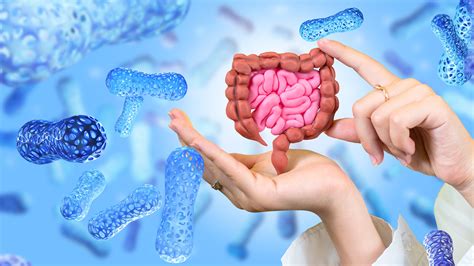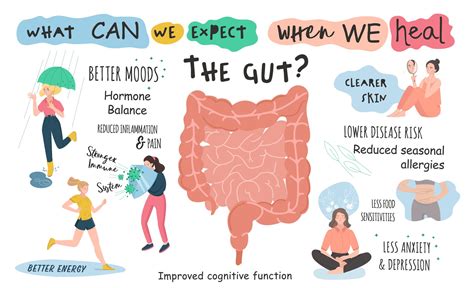How does gut health impact male energy, mood, & testosterone optimization?

For too long, gut health has been viewed primarily through the lens of digestion. However, emerging research paints a far broader picture, revealing its profound influence on nearly every system in the body, including those critical to male vitality: energy levels, mood stability, and hormonal balance, particularly testosterone optimization. A thriving gut microbiome isn’t just about comfortable digestion; it’s a cornerstone of overall male well-being.
The Gut-Brain Axis: A Two-Way Street for Mood
The intricate communication network between your gut and brain, known as the gut-brain axis, is a game-changer for understanding mood. Your gut is home to trillions of microorganisms that produce neurotransmitters, such as serotonin (up to 90% of which is produced in the gut) and gamma-aminobutyric acid (GABA), which directly influence brain function. An imbalanced gut microbiome, or dysbiosis, can disrupt this production and communication, leading to mood disturbances like anxiety, depression, and irritability.
Inflammation originating in the gut can also cross the blood-brain barrier, affecting brain chemistry and contributing to feelings of sluggishness and negativity. Optimizing gut health can therefore be a powerful strategy for enhancing emotional resilience and promoting a more positive outlook.

Gut Health and Sustained Energy Levels
Feeling perpetually drained, despite adequate sleep? Your gut might be the culprit. A healthy gut is essential for efficient nutrient absorption. When the gut lining is compromised (often referred to as ‘leaky gut’ or increased intestinal permeability) or the microbiome is imbalanced, your body struggles to absorb vital vitamins, minerals, and macronutrients from your diet. These nutrients are the raw materials your body uses to produce energy at a cellular level.
Furthermore, gut dysbiosis can lead to chronic low-grade inflammation. This systemic inflammation can divert energy resources away from normal bodily functions, contributing to persistent fatigue. Certain gut bacteria also play a role in synthesizing B vitamins, crucial for energy metabolism. A robust and diverse microbiome ensures you’re extracting maximum energy from your food and reducing inflammatory energy drains.

The Gut-Testosterone Connection: More Than Just Hormones
Testosterone, the primary male sex hormone, is vital for muscle mass, bone density, libido, and energy. While its production largely happens in the testes, gut health significantly influences its optimal function and availability. Here’s how:
- Estrogen Metabolism: The Estrobolome: The gut microbiome harbors a collection of bacteria known as the ‘estrobolome,’ which metabolizes estrogen. An imbalance in the estrobolome can lead to an excess reabsorption of estrogen into the bloodstream. In men, elevated estrogen levels can directly suppress testosterone production and increase the conversion of testosterone into estrogen, leading to symptoms like low libido, fatigue, and even gynecomastia.
- Inflammation and Hormone Production: Chronic gut inflammation negatively impacts the endocrine system. Systemic inflammation, often triggered by an unhealthy gut, can suppress the hypothalamic-pituitary-gonadal (HPG) axis, which is responsible for regulating testosterone production.
- Nutrient Absorption: Key nutrients like zinc, magnesium, and Vitamin D are crucial for testosterone synthesis. As mentioned, a compromised gut can impair the absorption of these essential cofactors, indirectly impacting hormone levels.

Optimizing Your Gut for Male Vitality
Understanding these connections empowers men to take proactive steps towards improving their gut health, and in turn, their energy, mood, and testosterone. Here are key strategies:
Dietary Strategies: Fueling a Healthy Microbiome
- Increase Fiber Intake: Found in fruits, vegetables, whole grains, and legumes, fiber acts as prebiotics, feeding beneficial gut bacteria.
- Consume Fermented Foods: Incorporate probiotic-rich foods like yogurt (without added sugars), kefir, sauerkraut, kimchi, and kombucha to introduce beneficial bacteria.
- Limit Processed Foods, Sugar, and Unhealthy Fats: These can promote the growth of detrimental bacteria and contribute to gut inflammation.
- Stay Hydrated: Water is essential for maintaining the integrity of the gut lining and aiding digestion.

Lifestyle Factors and Targeted Support
- Manage Stress: Chronic stress profoundly impacts gut health. Practice mindfulness, meditation, or engage in hobbies to reduce stress levels.
- Prioritize Sleep: Quality sleep is vital for gut repair and overall hormonal balance. Aim for 7-9 hours per night.
- Regular Exercise: Physical activity has been shown to positively influence gut microbiome diversity.
- Consider Supplements: Probiotics, prebiotics, and specific gut-healing nutrients (e.g., L-Glutamine, zinc carnosine) may be beneficial, ideally under professional guidance.
Conclusion
The health of your gut microbiome is not a peripheral concern; it’s central to male vitality. By nurturing a balanced and diverse gut ecosystem, men can significantly impact their energy levels, stabilize their mood, and optimize their testosterone production. This holistic approach to health offers a powerful pathway to feeling better, living with greater vigor, and achieving peak performance in all areas of life. Investing in your gut health is investing in your entire well-being.










